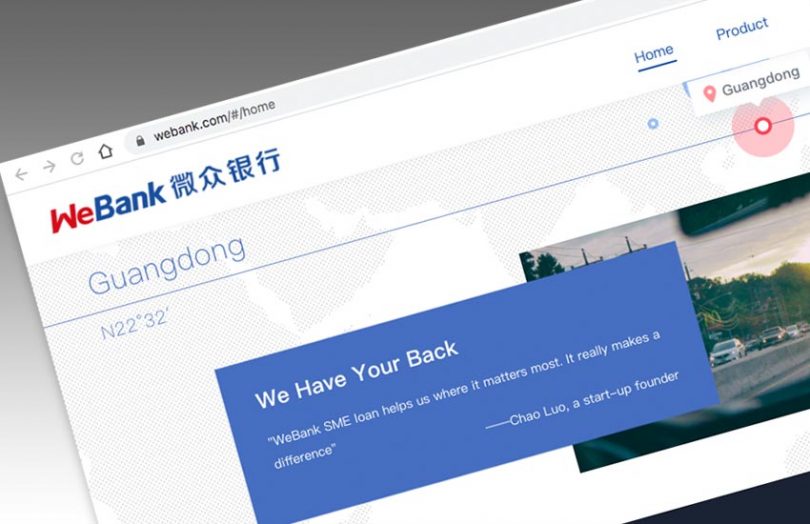Today it was announced that China’s WeBank is integrating Digital Asset‘s smart contract language DAML with the FISCO BCOS blockchain platform. DAML works with several different blockchain protocols.
WeBank is China’s first digital only bank and was started by Tencent, one of China’s big three tech companies, that owns WeChat and WeChat Pay. The bank has two other private firms as shareholders and was valued at $21 billion back in 2018.
Meanwhile, FISCO BCOS is a blockchain platform developed by the Financial Blockchain Shenzhen Consortium (FISCO). When it first launched in 2018, the stated aim of FISCO BCOS was to challenge enterprise blockchain Hyperledger Fabric with a Chinese consortium blockchain. Apart from WeBank, three of the eight founding members of FISCO BCOS are Tencent, Shenzhen Securities Communications and Huawei.
“Working with an international market leader like Digital Asset by integrating DAML smart contracts with FISCO BCOS is a key milestone for us to deliver next generation blockchain solutions across finance, supply chain and other sectors in China and beyond,” said Henry MA, Executive VP and CIO, WeBank.
In terms of impact, the interest from WeBank is potentially even bigger. FISCO BCOS was the first blockchain technology to be incorporated into China’s national Blockchain Service Network (BSN). The BSN is a low cost solution to enable firms to deploy permissioned blockchains without needing to set up their own nodes. And WeBank is one of just eight firms on the Developer Committee of the BSN which also has global ambitions.
At a technical level, FISCO BCOS is derived from Ethereum and the DAML integration work is being carried out by WeBank. FISCO BCOS is a coinless permissioned solution with a community of more than 10,000 developers and 500 corporates.
Since open sourcing the DAML smart contract language a little over a year ago, it has been integrated with most of the enterprise blockchain protocols. These include Hyperledger Fabric, Hyperledger Sawtooth, Ethereum compatible Hyperledger Besu, VMware Blockchain and R3’s Corda. Additionally, it works with Amazon’s databases QLDB and Aurora.
Although the DAML software is open source, there is usually OEM licensing, but when asked, Digital Asset said it wasn’t announcing any commercial relationships at this stage.
“Digital Asset is excited to see the adoption of DAML across the world, furthering it as the standard for smart contract development,” said Dan O’Prey, CMO & Head of Strategy, Digital Asset. “We deliberately made DAML and its integration kit open source to further this standardization. We see a lot of commercial opportunities in China, the region and with this partnership across the world.”






